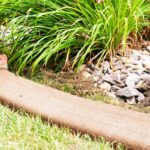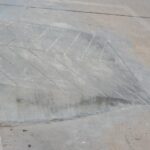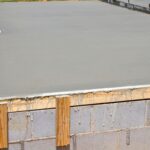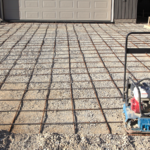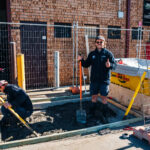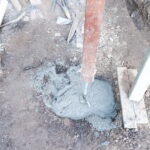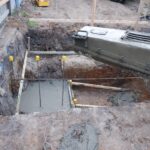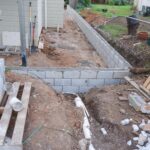When it comes to concrete, we all know it’s a tough, durable material, but that doesn’t mean it won’t get dirty. Whether you’ve got a concrete driveway, patio, floor, or need to clean concrete floors that have seen better days, it’s crucial to give it a bit of TLC to your concrete surface and keep it looking schmick.
If you’re not sure where to start, no worries—we’ve got the best tips to help you clean concrete like a pro, straight from your trusted concrete supplier.
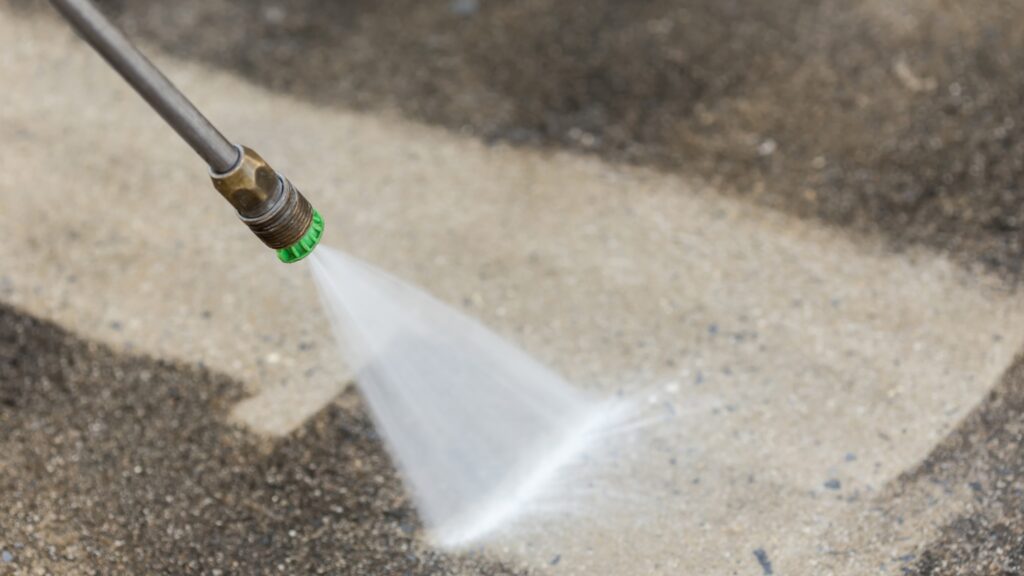
Preparing for Concrete Cleaning
Before you dive into cleaning your concrete surfaces, a bit of prep work goes a long way. Start by clearing away any loose debris like dirt, leaves, or twigs. A good sweep with a broom or a quick blast with a leaf blower should do the trick. Additionally, check for mildew stains as part of your initial assessment of the concrete surface. If you spot any stubborn stains or dirt build-up, you might need to bring out the big guns—a heavy-duty cleaning solution or a pressure washer can make light work of these tougher spots.
Don’t forget to check the weather forecast! Concrete cleaning during heavy rain or under the blazing sun isn’t ideal. Aim for a mild, dry day to ensure the cleaning process goes smoothly and your concrete surfaces dry properly.
What’s the Best Way to Clean Concrete?
Let’s be honest—concrete cops a lot. From oil spills, oil stains, and grease stains to rust marks and plain old dirt, it’s bound to need a solid clean every now and then. Using a concrete sealer is a good way to protect the surface and make future cleaning easier. But don’t stress if you don’t have this, cleaning concrete doesn’t need to be a massive headache. Here are a few tools and techniques to get the job done right:
- Pressure Washer: Pressure washing concrete is a highly effective method. High water pressure blasts away grime, mildew stains, and even oil stains without you needing to scrub for hours
- Good Old Scrub: Don’t have a pressure hose? No dramas. A stiff-bristled nylon brush and some elbow grease can do the trick. Pair that with a good cleaning solution—like a mix of warm water and powdered laundry detergent—and you’ll be laughing.
- Environmentally Friendly Solutions: If you’re keen to keep things green, you can go for natural cleaners like distilled white vinegar. It’s great for tackling tough stains and doesn’t involve harsh chemicals that could damage your concrete or surrounding plants. Baking soda is another excellent option, as it can absorb excess grease and moisture from spills while being safe for the environment. For tough rust stains, consider using a rust remover to get the job done effectively.
Step-by-Step Cleaning Process for Concrete Surfaces
Whether it’s a driveway, concrete patio, or floor, here’s a simple breakdown of how to clean your concrete like the professionals:
- Clear the Area: Before you even think about cleaning, get rid of any loose dirt and debris. Sweep it up with a stiff broom or use a garden hose with a spray nozzle to blast away dirt.
- Pre-Treat Stains: Got stubborn oil stains? Hit them with a bit of dishwashing liquid and hot water. Alternatively, sprinkle baking soda directly on the stains to absorb excess grease and moisture. Let it sit for 10-15 minutes to loosen up the grime before scrubbing with a stiff brush or nylon brush.
- Pressure Wash: For larger surfaces like concrete driveways or patios, pressure washing is your best mate. Use a pressure hose on a medium setting to blast away dirt, mildew, and rust stains. Keep the nozzle at least 30 cm from the surface to avoid damaging the concrete.
- Spot Clean Tough Stains: Got really tough stains like rust or tire marks? You might need a commercial concrete cleaner or rust remover. For oil stains, sprinkle baking soda on the spot and scrub with a brush. Always follow the manufacturer’s instructions and wear protective gear—these products can be pretty harsh.
- Rinse with Fresh Water: After scrubbing or pressure washing, rinse the entire surface with fresh water to remove any leftover cleaning solution.
- Let It Air Dry: Finally, let your concrete dry completely before walking or driving on it. This step’s essential, especially for concrete driveways, as any leftover moisture could weaken the surface over time.
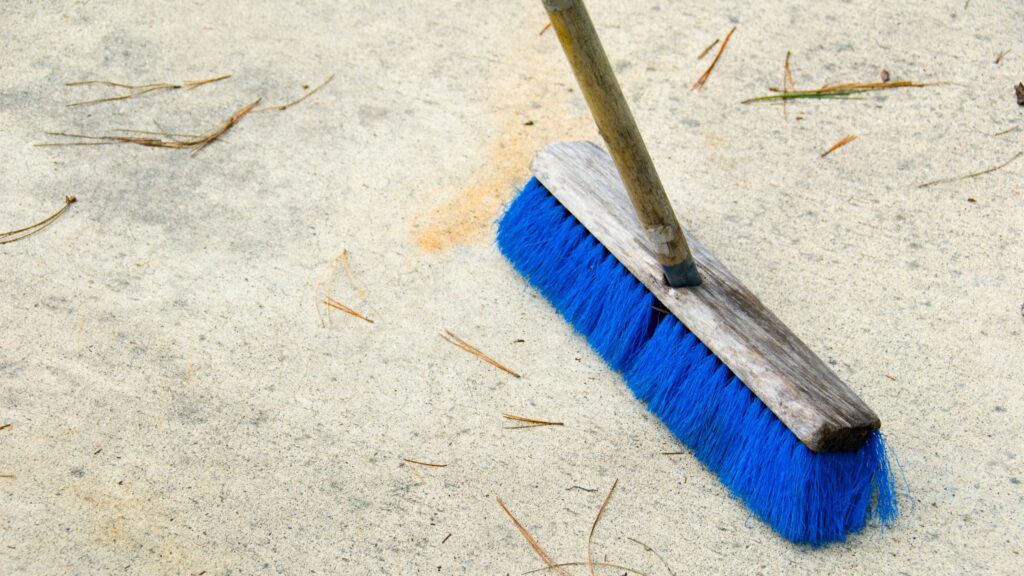
Should You Pressure Wash Concrete?
You’ve probably heard a few myths about pressure washing—some say it’s too harsh, while others swear by it. So, what’s the verdict? In our expert opinion, pressure washing is safe for most concrete surfaces as long as you don’t go overboard with the water pressure. Stick to a medium setting and keep the nozzle moving to avoid concentrating the stream in one spot for too long. Additionally, pressure washing is highly effective for removing mildew from concrete surfaces.
How to Clean Concrete Without a Pressure Washer
No pressure washer? No worries. You can still get your concrete floor and other concrete surfaces looking spick and span with some simple tools:
- Broom and Scrub Brush: Start by sweeping up loose dirt, then tackle stains with a stiff brush or nylon brush and your chosen cleaning solution.
- Hot Water and Detergent: For oil stains, a mix of hot water and dishwashing liquid works a treat. Alternatively, you can use powdered laundry detergent. Scrub the area with a stiff-bristled brush, then rinse with fresh water.
- Baking Soda and Vinegar: For oil stains, sprinkle baking soda directly on the stain to absorb excess grease and moisture. Follow up by pouring vinegar over the area, let it fizz and sit for a few minutes, then scrub with a brush and rinse with water.
- Distilled White Vinegar: If you’re dealing with rust or mildew, vinegar’s a natural and effective option. Pour it over the stained area, let it sit for a few minutes, then scrub and rinse.
Dealing with Stubborn Stains: Oil, Grease, and Rust
Concrete can soak up stains like a sponge, especially if it’s unsealed. Here’s how to tackle the big three:
- Oil and Grease Stains: Pour a bit of dishwashing liquid or degreaser over the stain, scrub it with a stiff-bristled brush, then rinse it off with hot water.
- Rust Stains: These can be a bit more stubborn. A commercial rust remover or a mix of vinegar and water usually does the trick. Apply it to the stain, let it sit, then scrub and rinse.
- Tire Marks: Pressure washing usually works well, but if the marks are really set in, you might need a commercial cleaner designed for rubber stains.
To tackle these stubborn concrete stains like oil, grease, rust, and tire marks, try using degreasers or dishwashing liquid for oil, rust remover or vinegar for rust, and pressure washing for tire marks, with commercial cleaners for tougher stains.
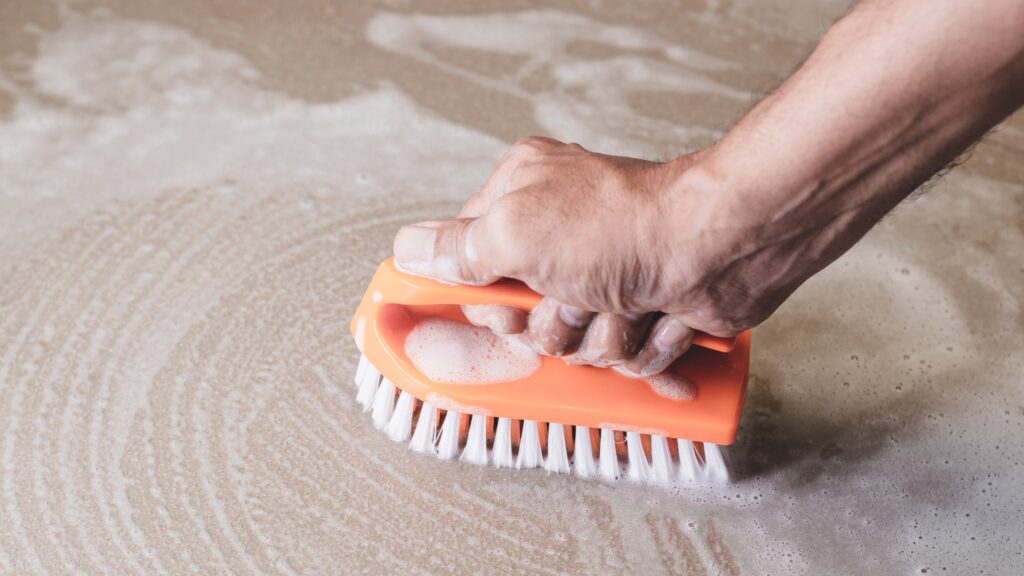
How Do I Get My Concrete White Again?
The process of discoloration can make concrete start to look dull over time, especially if it’s exposed to the elements. To get your concrete looking white again:
- Pressure Wash Regularly: Keep up with regular maintenance using a pressure washer. This will blast away dirt and stains before they get too set in.
- Use a Commercial Cleaner: For those stubborn stains, a specialised concrete cleaner will bring back that fresh, clean look.
- Avoid Harsh Chemicals: While it might be tempting to go hard on stains with strong chemicals, they can actually damage your concrete in the long run. Stick to the right tools and cleaning solutions to keep your concrete in top shape.
To maintain a fresh white look for your concrete patios, be sure to experiment with some of these options.
Tips for Cleaning Different Types of Concrete Finishes
Different concrete finishes need different TLC. Here’s how to handle each one:
- Polished Concrete Floors: Use a gentle cleaning solution and a soft-bristled brush to avoid scratching the surface. A mix of warm water and mild detergent usually does the trick.
- Painted Concrete Floors: Stick to a mild cleaning solution and a soft-bristled brush to keep the paint intact. Avoid harsh chemicals that could strip the paint.
- Stamped Concrete Floors: These have a textured surface, so use a gentle cleaning solution and a soft-bristled brush to avoid damaging the texture.
- Sealed Concrete Floors: Sealed surfaces need a bit of extra care. Use a gentle cleaning solution and a soft-bristled brush to avoid damaging the sealant.
Always check the label on your cleaning products to make sure they’re suitable for your specific type of concrete finish.
Regular Maintenance is Key
At the end of the day, the best way to keep your concrete looking good is regular maintenance. A quick sweep or wash down every few months with a mild detergent will prevent stains from setting in and save you a heap of hard yakka in the future.
Should I Hire Professional Cleaners?
Look, cleaning concrete yourself is doable, but if your concrete surface is heavily soiled or you’re dealing with large areas, it might be worth calling in the pros. Professional cleaners have industrial-strength pressure washers and commercial-grade cleaners that can save you time and effort.
Cleaning concrete might seem like a tough job, but with the right tools and a bit of know-how, it’s easier than you think. Whether you’re pressure washing a driveway, scrubbing a patio, or tackling oil stains in the garage, these tips from your concrete supplier will have your concrete looking as good as new.
For more tips, or if you’re keen on high-quality concrete supplies for your next project, Contact the friendly team at Concrete Taxi – we’ve got your back! We proudly support customers nationwide, check out the Australian regions we service.

